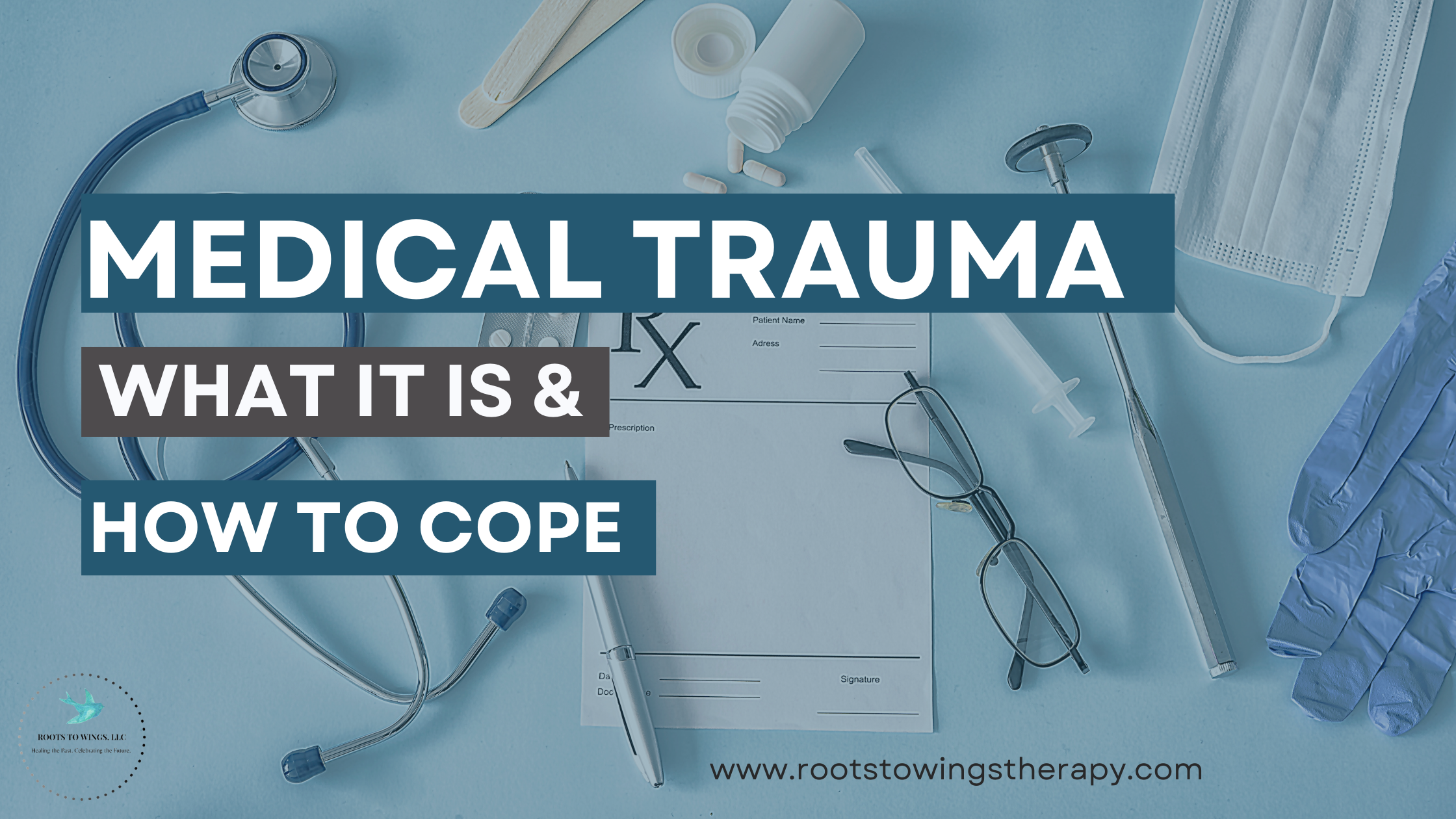By Elaina Kossoy, Counseling Intern
When we think of trauma, we often think of outside events or situations. These can include homelessness, exposure to violence, abuse or neglect, or natural disaster to name a few. One of the most under-recognized forms of trauma is known as medical trauma. Compared to non-medical forms of trauma, medical trauma is a broad term for any trauma that happens in a medical setting. Medical trauma, as with any form of trauma, sets off a response in the brain that there is a threat to our body. When an individual experiences medical trauma, this alarm is stuck on all day, everyday due to the threat being within the individual’s body.
Examples:
- Prolonged stay in hospital: this is more common in individuals who have spent time in the intensive care unit or required life-saving treatment, such as emergency surgery.
- Gaslighting: In medical settings, gaslighting often involves medical professionals dismissing or downgrading the patient’s symptoms. This can lead to misdiagnosis or a delay in treatment, which can be detrimental to the individual.
- Life-altering complications or injury: This may include a life-changing injury such as being paralyzed or loss of a limb. However, this may also be in the form of medical malpractice or long-term, or severe complications.
- Even everyday procedures, such as c-sections or minor surgeries can contribute to the development of medical trauma.
What Makes Medical Trauma Unique?
The overall risk of an individual being chronically retraumatized is significantly higher compared to non-medical forms of trauma. This is because medical trauma is within the body, and the threat to the individual’s health often cannot be removed or avoided completely. The triggers of medical trauma are often more challenging to avoid, as follow-up treatments are usually required after a traumatic medical event or injury. Even the smells and objects present at a primary care doctor’s office can trigger an individual who has experienced medical trauma. This often leads patients to avoid pursuing medical care to prevent being retraumatized. This is especially common in individuals with a history of heart attacks or strokes. However, many other medical events or illnesses can increase an individual’s need for follow-up care. Whether the individual requires regular ongoing care for the issue or not, there is likely still the possibility that the individual will be triggered by something as simple as an annual check-up with their primary care provider.
Tips for Coping with Medical Trauma and Reducing Triggers
- Advocating for yourself: Advocating for your needs is essential. For example, if you have experienced a painful procedure, talking to the doctor before any procedures, you may have in the future that you have reservations about undergoing can help reduce anxiety. One way to achieve this may be to ask the doctor to ensure that they walk you through what they are doing before they do it. This is helpful for patients who would prefer to know what is going on to reduce our nervous system’s strong response when we perceive a threat to our body.
- Music: Music is a way to calm the nervous system and reduce anxiety, particularly before a procedure or surgery.
- Support: A positive support system is essential, especially when follow-up care is needed. This may be someone who is there to take you to procedures or treatments and care for you after if required. Support groups are also an excellent way to get support from people that understand the difficulties associated with certain illnesses or issues.
- Identifying triggers and creating a plan to cope with them: Triggers of medical trauma are difficult, if not impossible, to avoid as doctors are important in maintaining health and wellness, and avoiding them can have serious consequences. Some people’s triggers may be certain smells; for others, they may be bright lights or beeping noises. Coping strategies to combat these triggers can be used to reduce the trauma responses attributed to the triggers. Examples of these may include grounding, listening to music, and working with a medical team to identify alternative ways to achieve the same goal of treatment.
Ultimately, medical trauma is one of the most under-recognized forms of complex, chronic trauma that leads to PTSD.
References
Edmondson, D. (2014). An enduring somatic threat model of posttraumatic stress disorder due to acute life-threatening medical events. Social and Personality Psychology Compass, 8(3), 118–134. https://doi.org/10.1111/spc3.12089
Peterson, S. (2018). Medical trauma. The National Child Traumatic Stress Network. https://www.nctsn.org/what-is-child-trauma/trauma-types/medical-trauma

